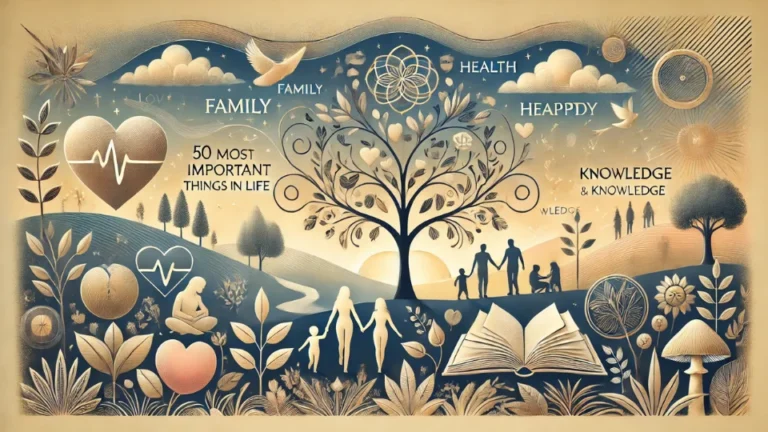40 Hardest Jobs in the World

Some jobs are not only demanding but also extremely tough—physically, mentally, and emotionally. These roles require special skills, intense focus, and the ability to handle stress or danger. In this article, we will explore the 40 hardest jobs in the world, explaining why they are challenging and what it takes to succeed in them.
What Makes a Job Hard?

Physical Demands

Jobs that require lifting, standing for long hours, or working in extreme conditions are physically hard.
Mental Pressure

Some jobs involve making tough decisions, handling emergencies, or managing high levels of responsibility.
Emotional Strain

Dealing with pain, loss, or people’s emotions can take a toll on workers in certain careers.
Risk and Danger

Many jobs involve working in unsafe environments or facing life-threatening situations.
40 Hardest Jobs in the World
1. Military Personnel
- Why It’s Hard: Long deployments, physical training, and life-risking missions.
2. Firefighter
- Why It’s Hard: Running into burning buildings and handling life-or-death emergencies.
3. Police Officer
- Why It’s Hard: Facing danger, stress, and making quick, tough decisions.
4. Miner
- Why It’s Hard: Working underground with heavy machinery in unsafe conditions.
5. Healthcare Worker (Doctors, Nurses, Paramedics)
- Why It’s Hard: Long hours, emergencies, and emotional stress from patients.
6. Pilot
- Why It’s Hard: High responsibility, long flights, jet lag, and quick decisions in the air.
7. Construction Worker
- Why It’s Hard: Physical labor in tough weather and dangerous environments.
8. Logger
- Why It’s Hard: Cutting down trees in remote, often risky forests.
9. Search and Rescue Worker
- Why It’s Hard: Responding to disasters, rough terrain, and pressure to save lives.
10. Oil Rig Worker
- Why It’s Hard: Long shifts at sea with dangerous equipment and isolation.
11. Astronaut
- Why It’s Hard: Requires years of training and working in extreme space conditions.
12. Bomb Disposal Technician
- Why It’s Hard: Disarming explosives is risky and requires steady hands and nerves.
13. Prison Guard
- Why It’s Hard: Managing inmates and staying alert in a tense environment.
14. Fisherman (Deep Sea)
- Why It’s Hard: Harsh sea weather, long trips, and physical work.
15. Roofer
- Why It’s Hard: Working at heights, exposed to sun, wind, and danger of falls.
16. EMT (Emergency Medical Technician)
- Why It’s Hard: High-pressure situations, unpredictable hours, and life-saving responsibilities.
17. Farmer
- Why It’s Hard: Long hours, unpredictable weather, and physically tiring work.
18. Stunt Performer
- Why It’s Hard: Risk of injury, physical stress, and precise skills.
19. War Correspondent
- Why It’s Hard: Reporting from conflict zones while facing danger and emotional trauma.
20. Ironworker
- Why It’s Hard: Building structures at high altitudes with heavy materials.
21. Social Worker
- Why It’s Hard: Dealing with families in crisis, abuse cases, and emotional stress.
22. Truck Driver (Long Haul)
- Why It’s Hard: Long hours on the road, fatigue, and tight deadlines.
23. Mountain Climber Guide
- Why It’s Hard: Risky weather, altitude sickness, and physical challenges.
24. Journalist in Conflict Zones
- Why It’s Hard: Facing censorship, threats, and physical danger.
25. Waste Collector
- Why It’s Hard: Physically demanding and often seen as dirty or unsafe.
26. High-rise Window Cleaner
- Why It’s Hard: Working at extreme heights with high risk of falling.
27. Underwater Welder
- Why It’s Hard: Dangerous work conditions and risk of drowning or explosion.
28. Athlete (Professional)
- Why It’s Hard: Constant training, injuries, and high pressure to perform.
29. Actor (Famous/Professional)
- Why It’s Hard: Unstable work, long hours, and mental pressure from fame.
30. Entrepreneur
- Why It’s Hard: Long workweeks, financial risk, and constant decision-making.
31. Air Traffic Controller
- Why It’s Hard: Intense concentration needed to avoid accidents.
32. Detective
- Why It’s Hard: Investigating crimes, emotional stress, and odd work hours.
33. Disaster Relief Worker
- Why It’s Hard: Working in crisis zones with limited supplies and high stress.
34. Bridge Painter
- Why It’s Hard: Working at heights, toxic chemicals, and physical demands.
35. Border Patrol Agent
- Why It’s Hard: Patrolling dangerous areas and enforcing laws under pressure.
36. Ice Road Trucker
- Why It’s Hard: Driving in icy, dangerous conditions with heavy cargo.
37. Diver (Commercial/Deep Sea)
- Why It’s Hard: Dangerous dives, pressure risks, and technical skills.
38. Zoo Animal Caretaker
- Why It’s Hard: Handling large animals and keeping them healthy and safe.
39. Bodyguard
- Why It’s Hard: Protecting high-profile people, always being alert to danger.
40. Cleaners in Biohazard Zones
- Why It’s Hard: Exposure to harmful substances, strict safety rules, and emotional strain.
FAQs About the World’s Hardest Jobs
Which job is the hardest in the world?
There’s no single answer, but many experts agree that military, healthcare, and emergency service jobs are among the toughest.
Are high-paying jobs always hard?
Not always, but many high-paying jobs come with big responsibilities, long hours, or mental stress.
What jobs are hard but rewarding?
Jobs like being a doctor, firefighter, or social worker can be emotionally and physically hard, but they offer purpose and fulfillment.
Can a hard job affect mental health?
Yes, jobs with high stress, trauma, or long hours can impact mental health. That’s why support and work-life balance are important.
How can someone prepare for a tough job?
Training, education, fitness, and mental preparation all help. It’s also important to take breaks and ask for help when needed.
Conclusion
The hardest jobs in the world test the limits of strength, patience, and courage. Whether it’s running into a burning building, saving lives in a hospital, or working deep under the ocean, these careers demand more than most. However, many people choose these paths not for money or fame, but for purpose and passion. If you’re considering a challenging career, know that with the right mindset and support, you can not only survive—but thrive.






